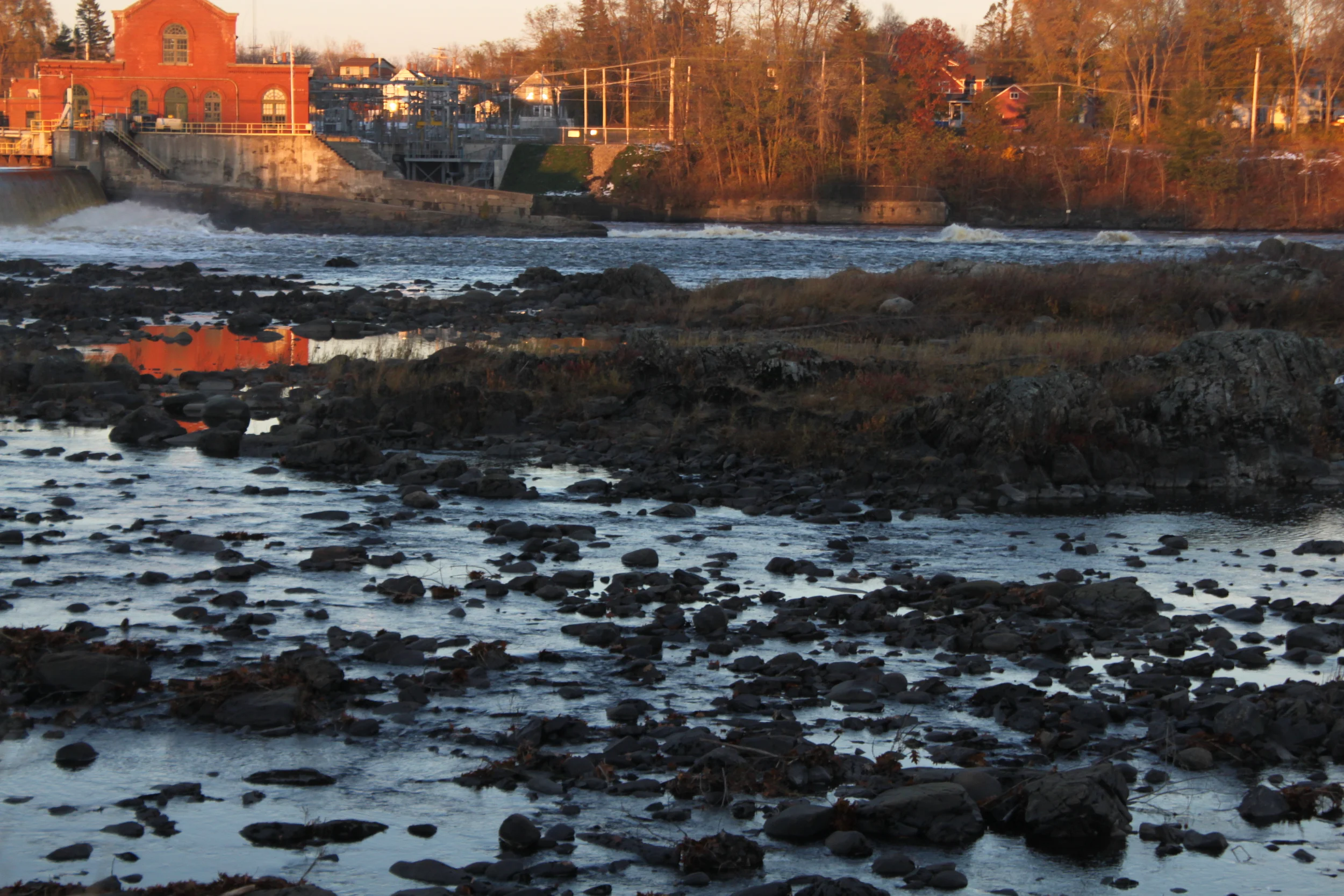IN KINSHIP is a multi-year performance project that looks at how we connect and care for one another within Maine’s Penobscot River Watershed ecosystem. This river-driven community dialogue is made up of many discrete nodes in a variety of experimental formats. They function as individual performative events with their own dramaturgies and smaller audiences but also come together to make up a larger network of conversation.
IN KINSHIP models the fluidity of the river itself. Project activities are determined, devised, and realized through ongoing collaboration with a variety of artistic and civic partners. Each creative process generates further understanding of the project ecosystem and informs future actions. The project employs an amorphous distinction between “audience”, “participant”, and “creator”. Audiences share stories with one another. Children write wishes for the river on bark paper and release them above the cool waters of a tributary stream. Events travel with the river, interweave disciplines, occupy many spaces, and create journeys.
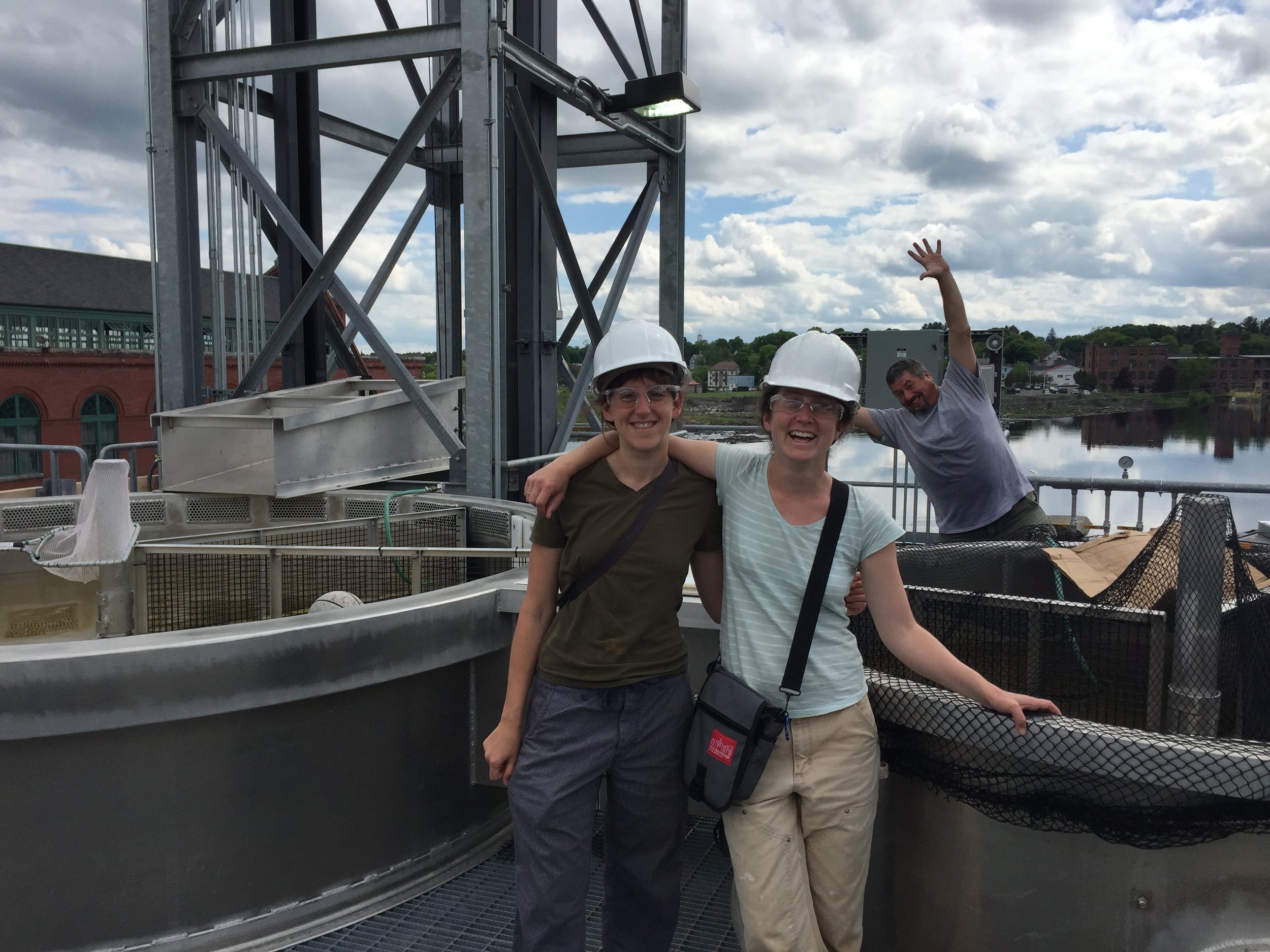
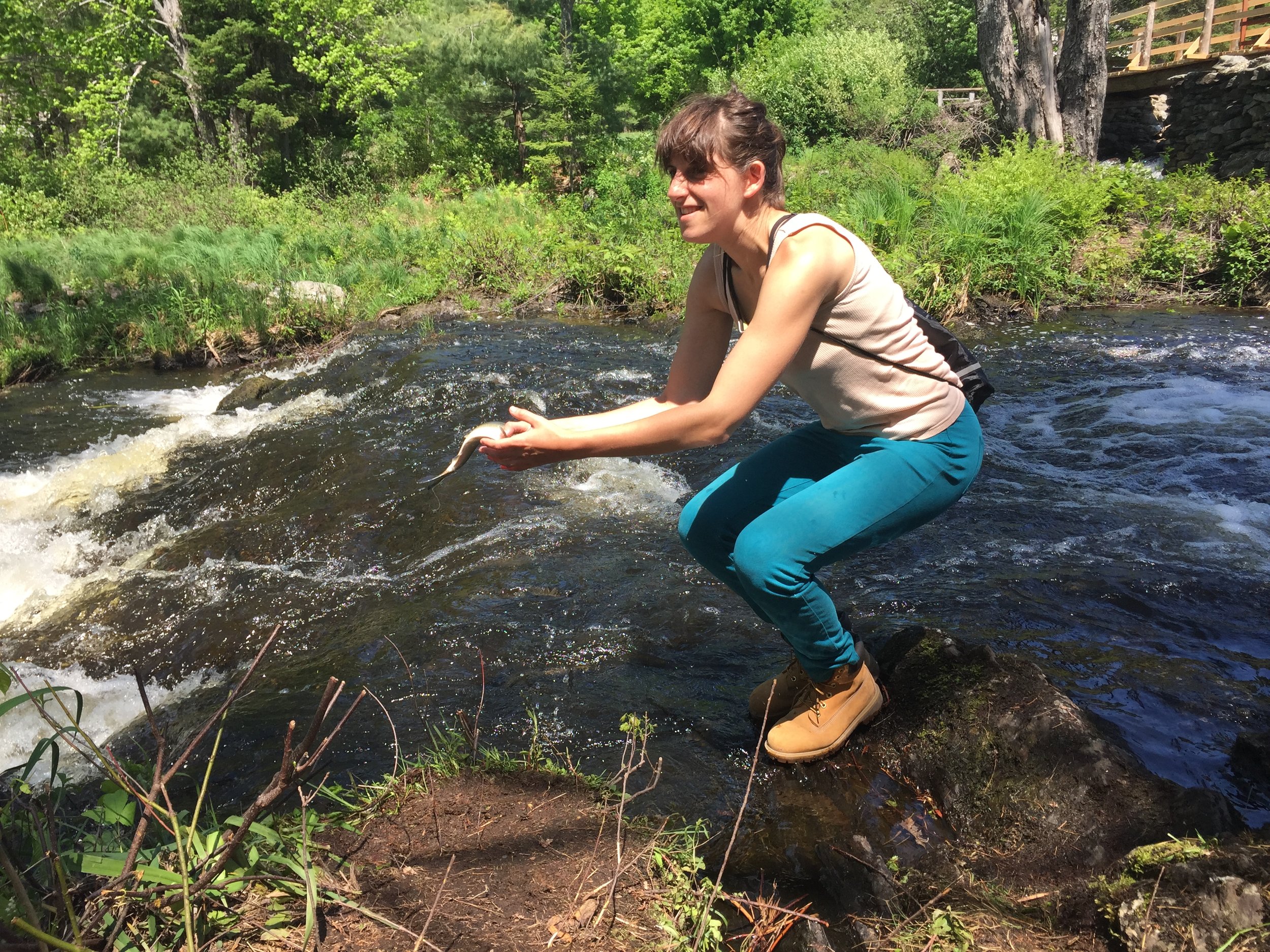
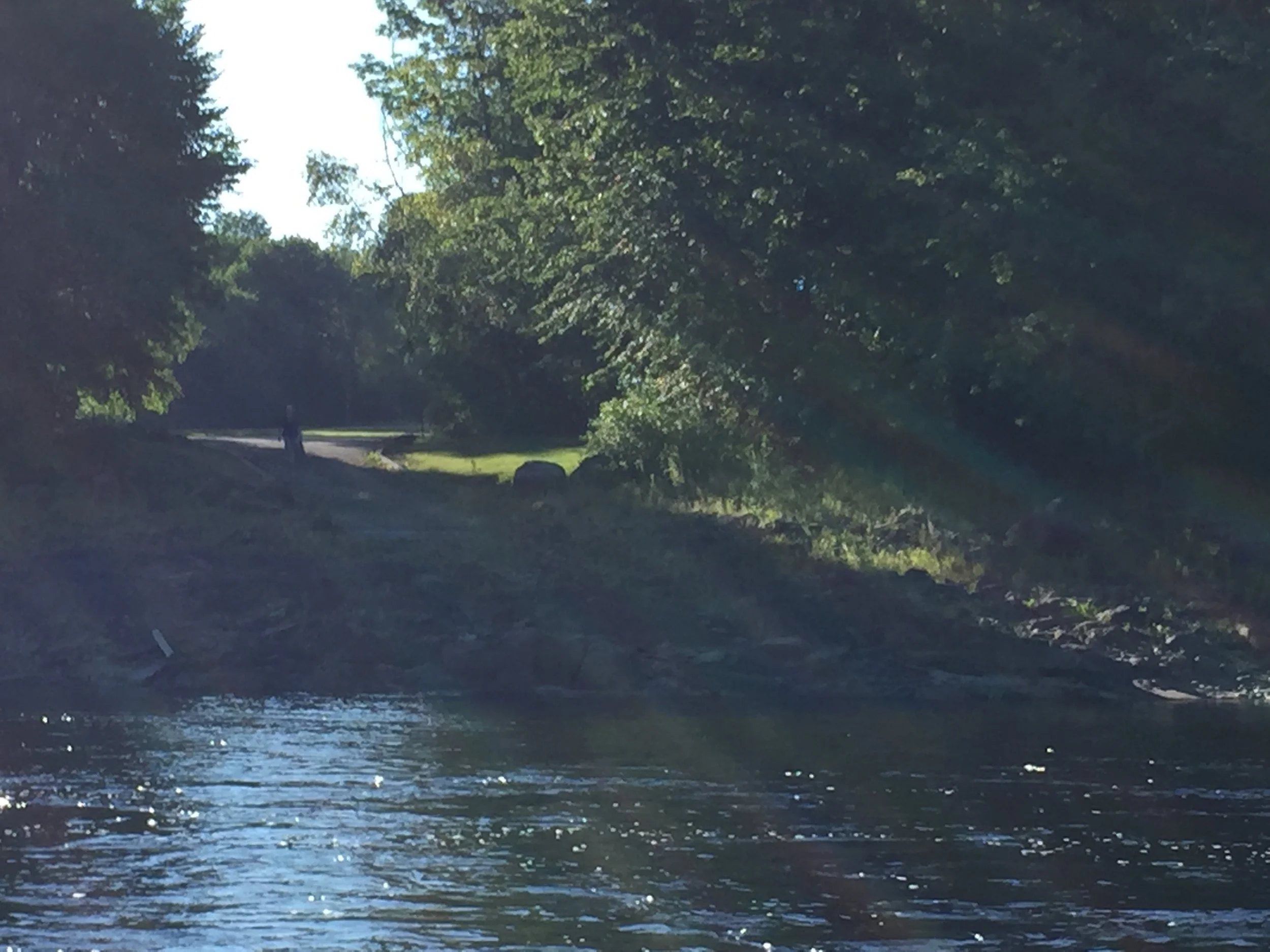
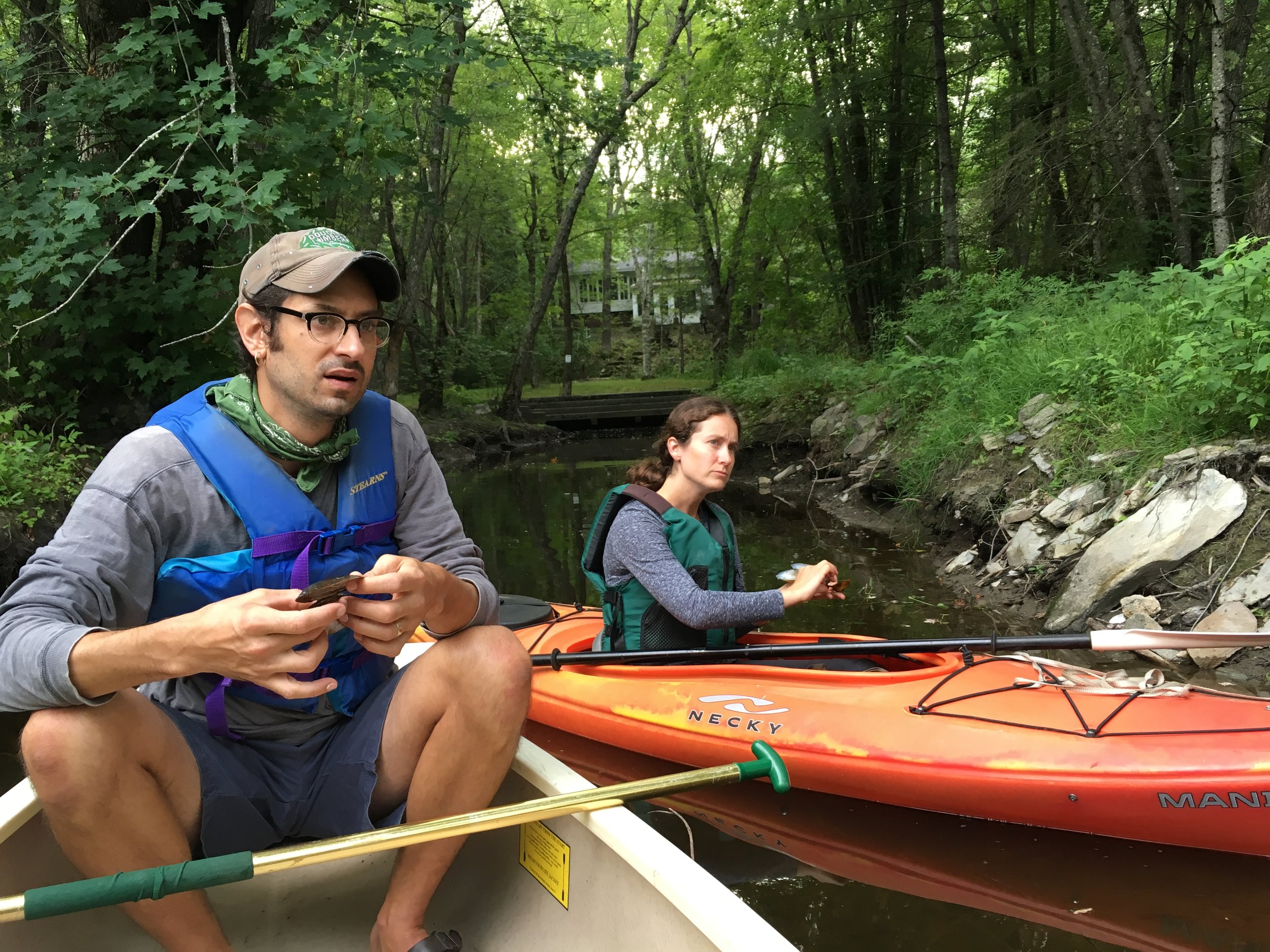
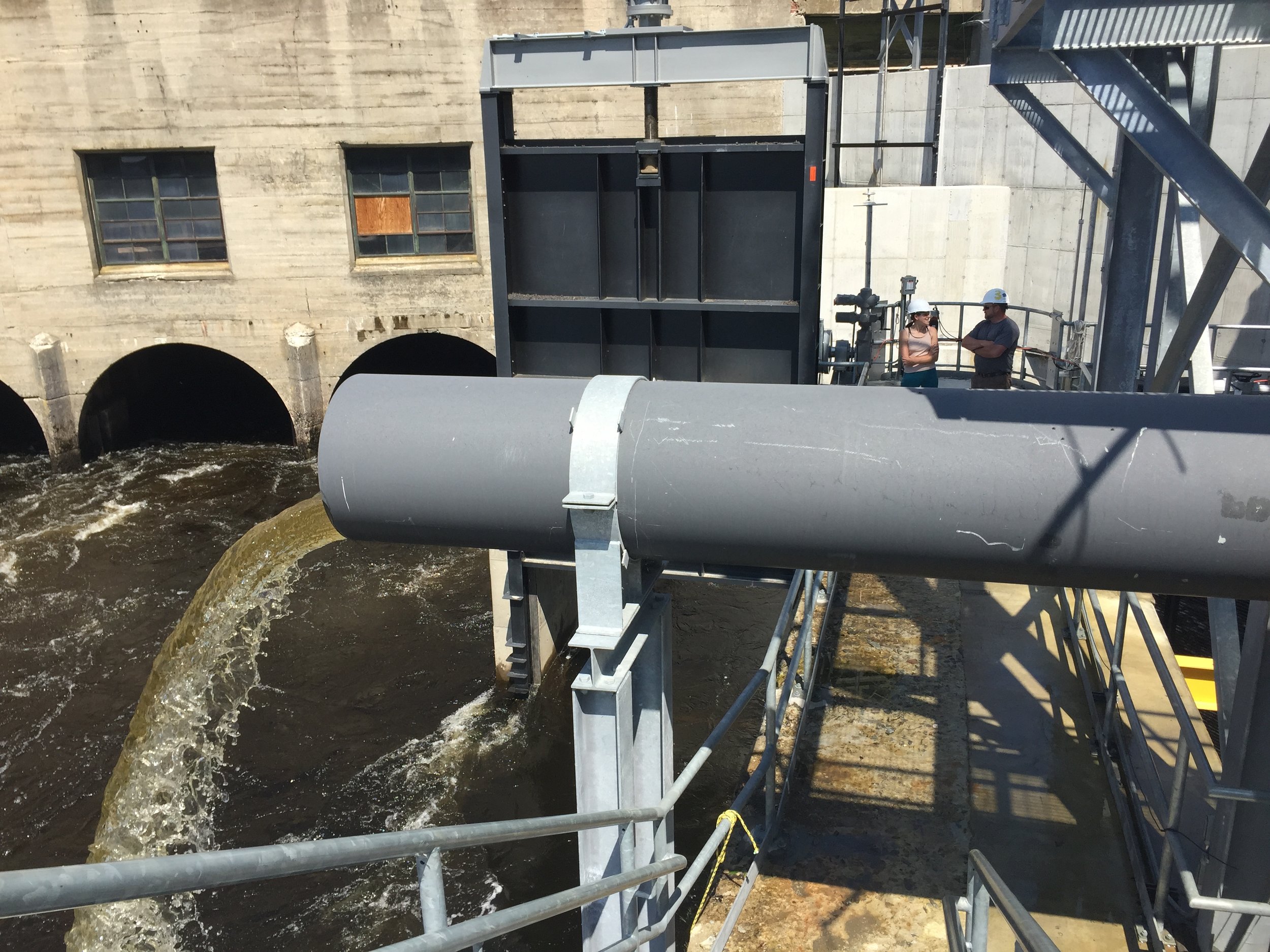
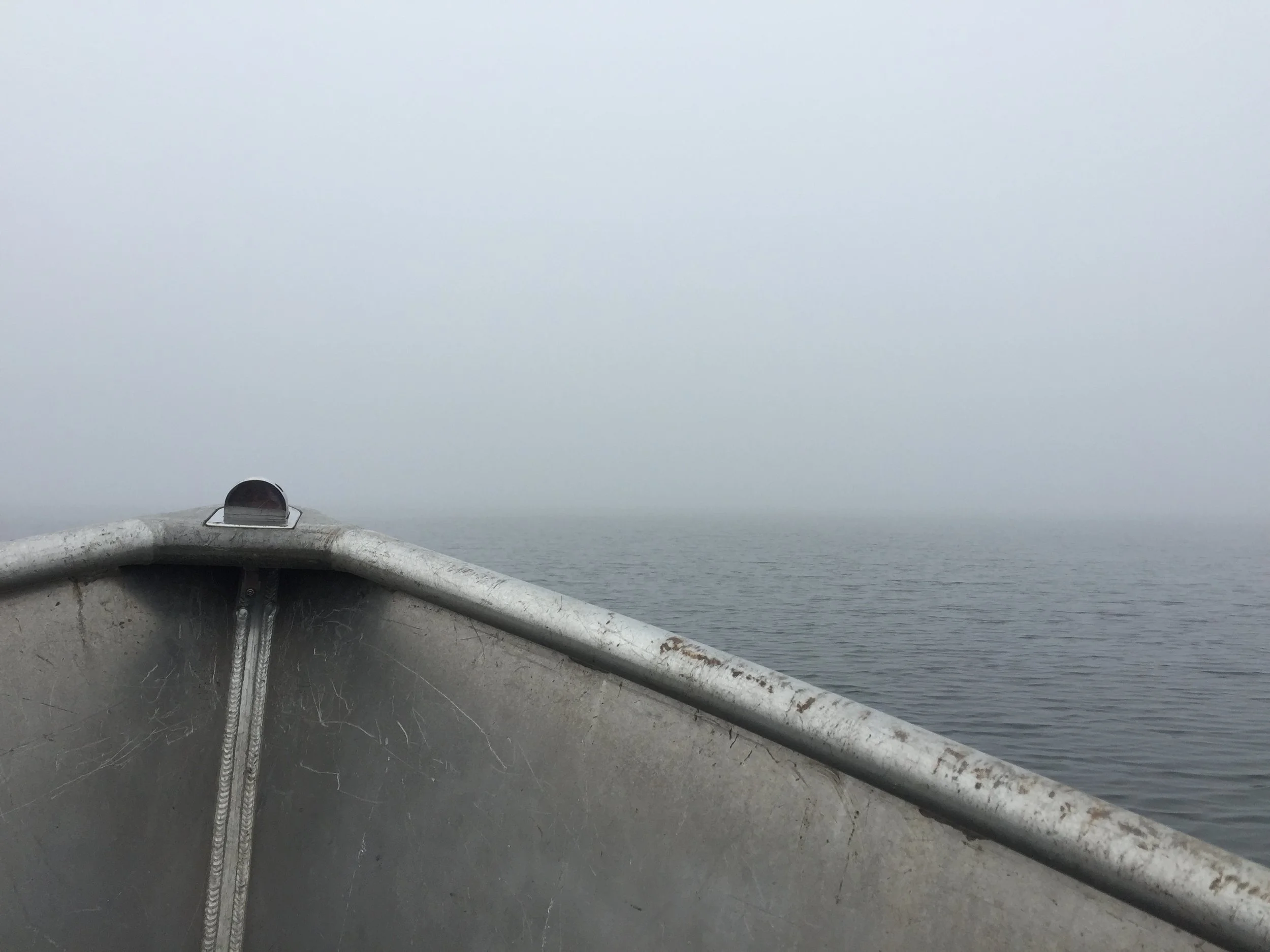
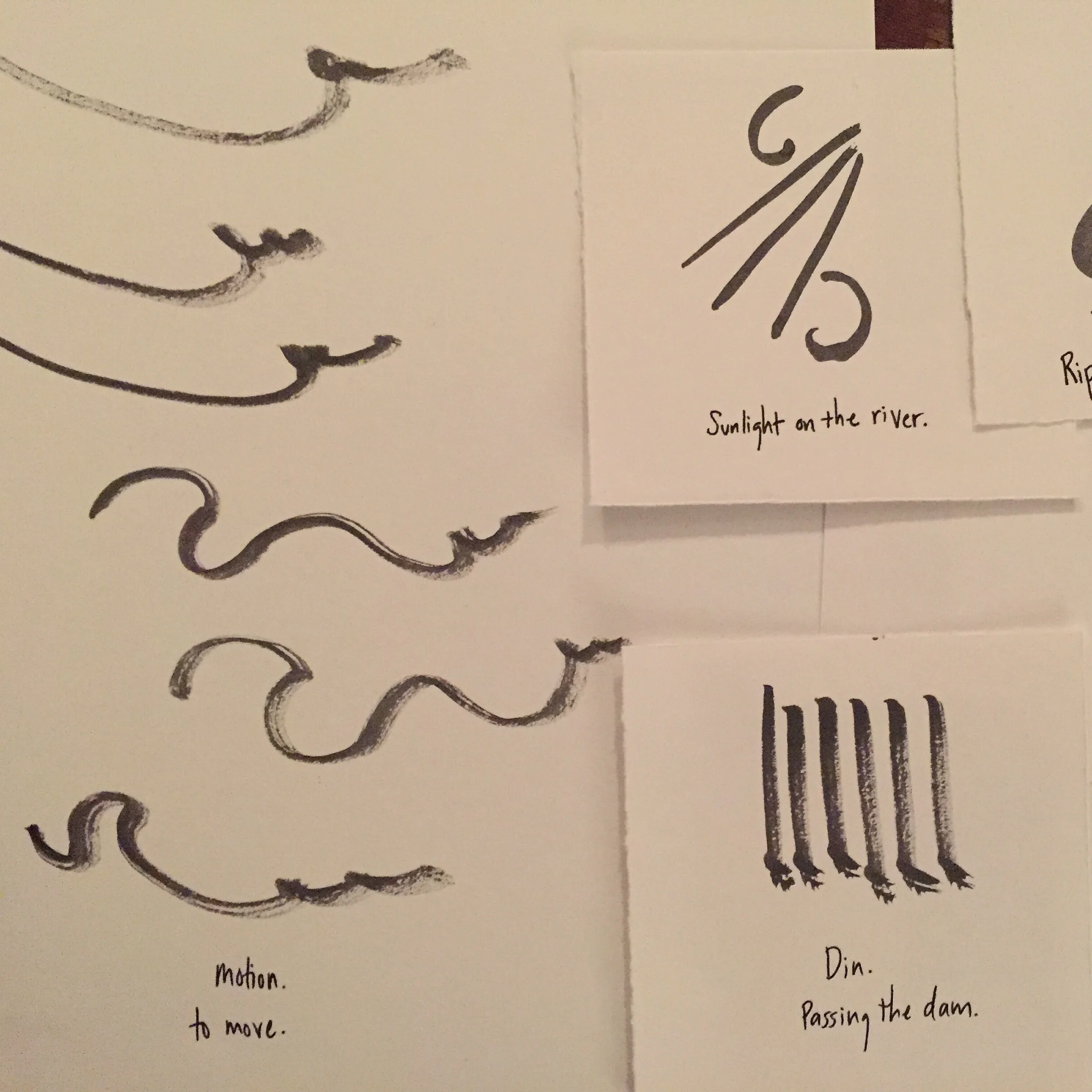
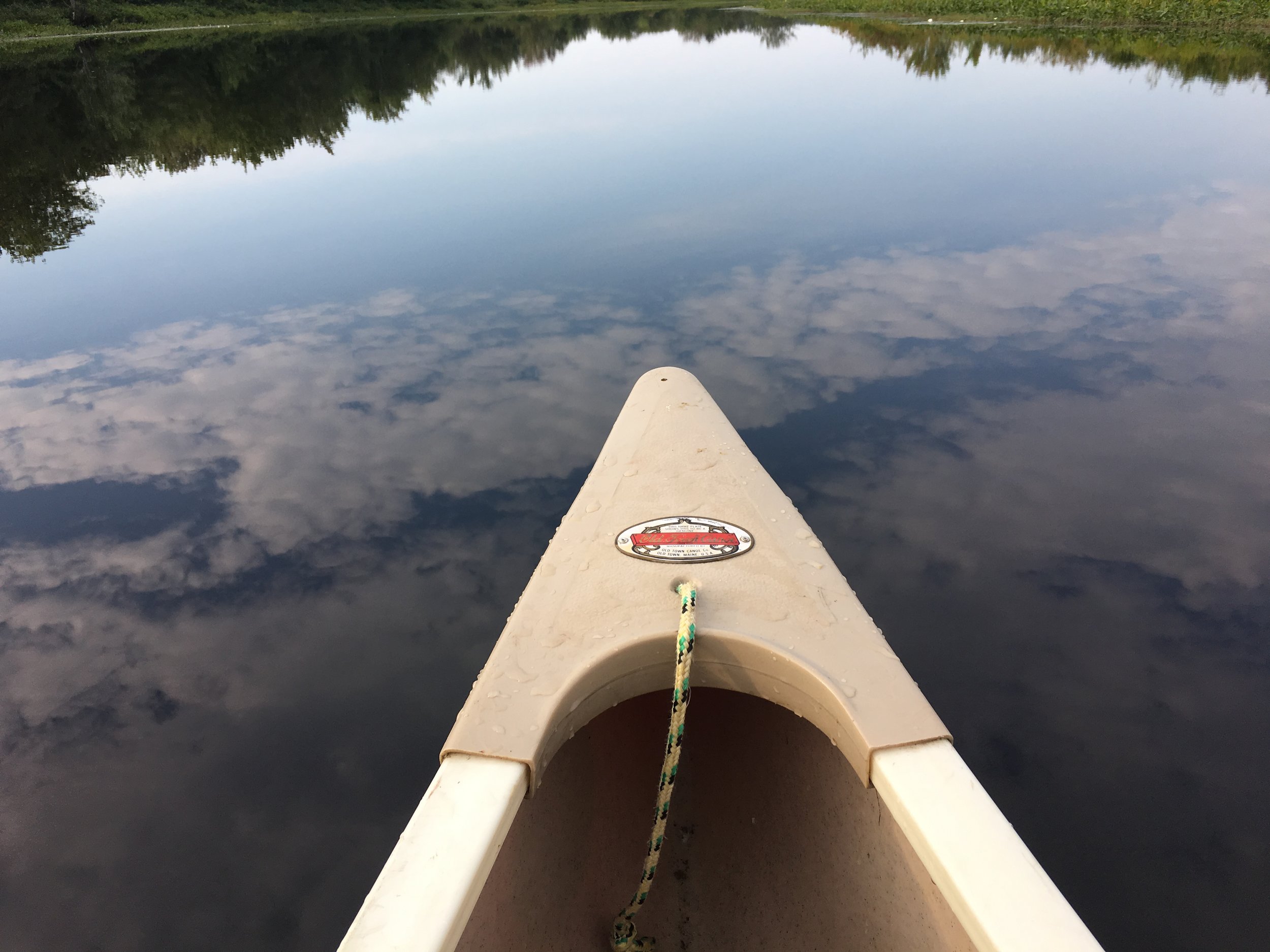
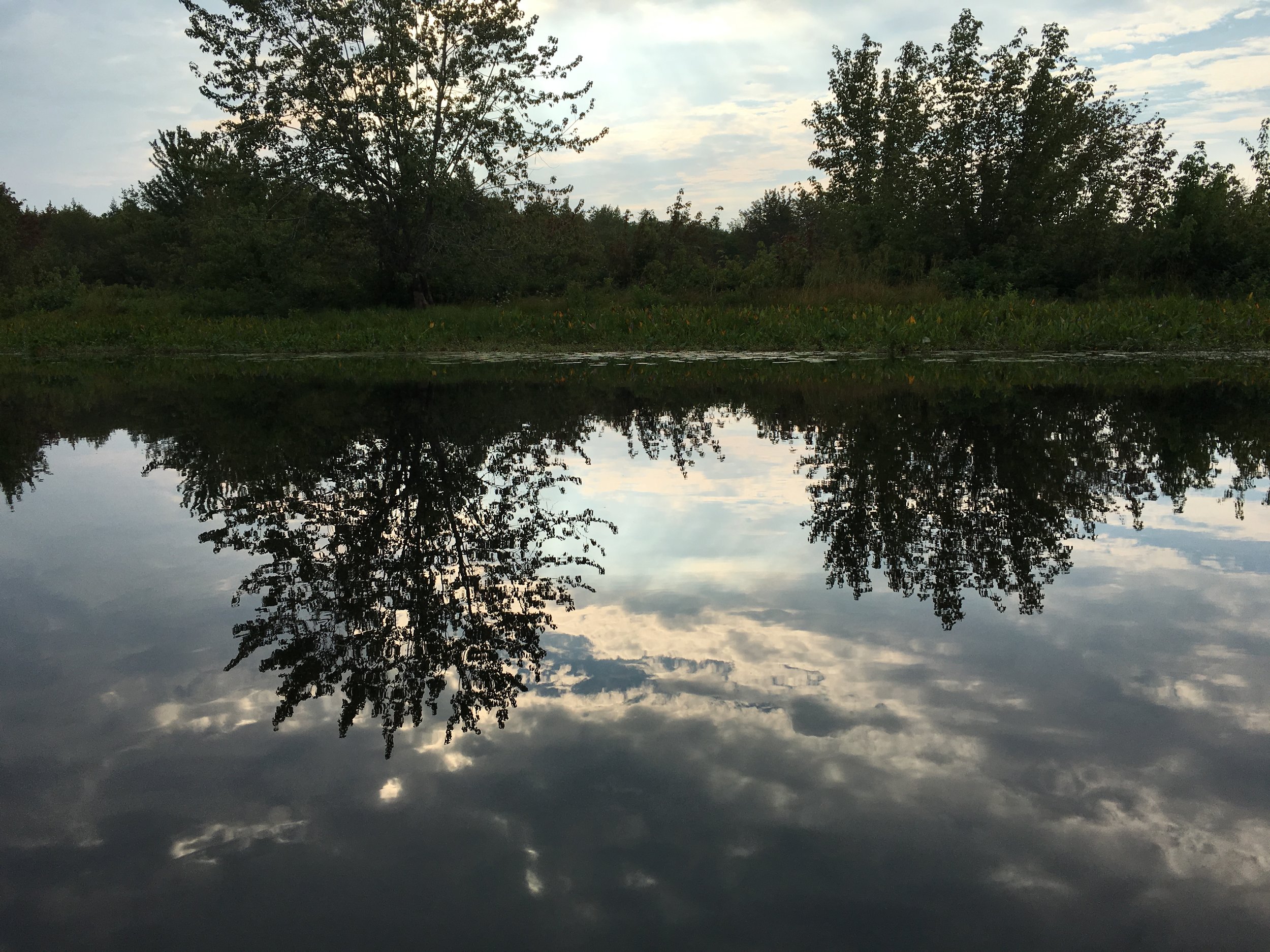
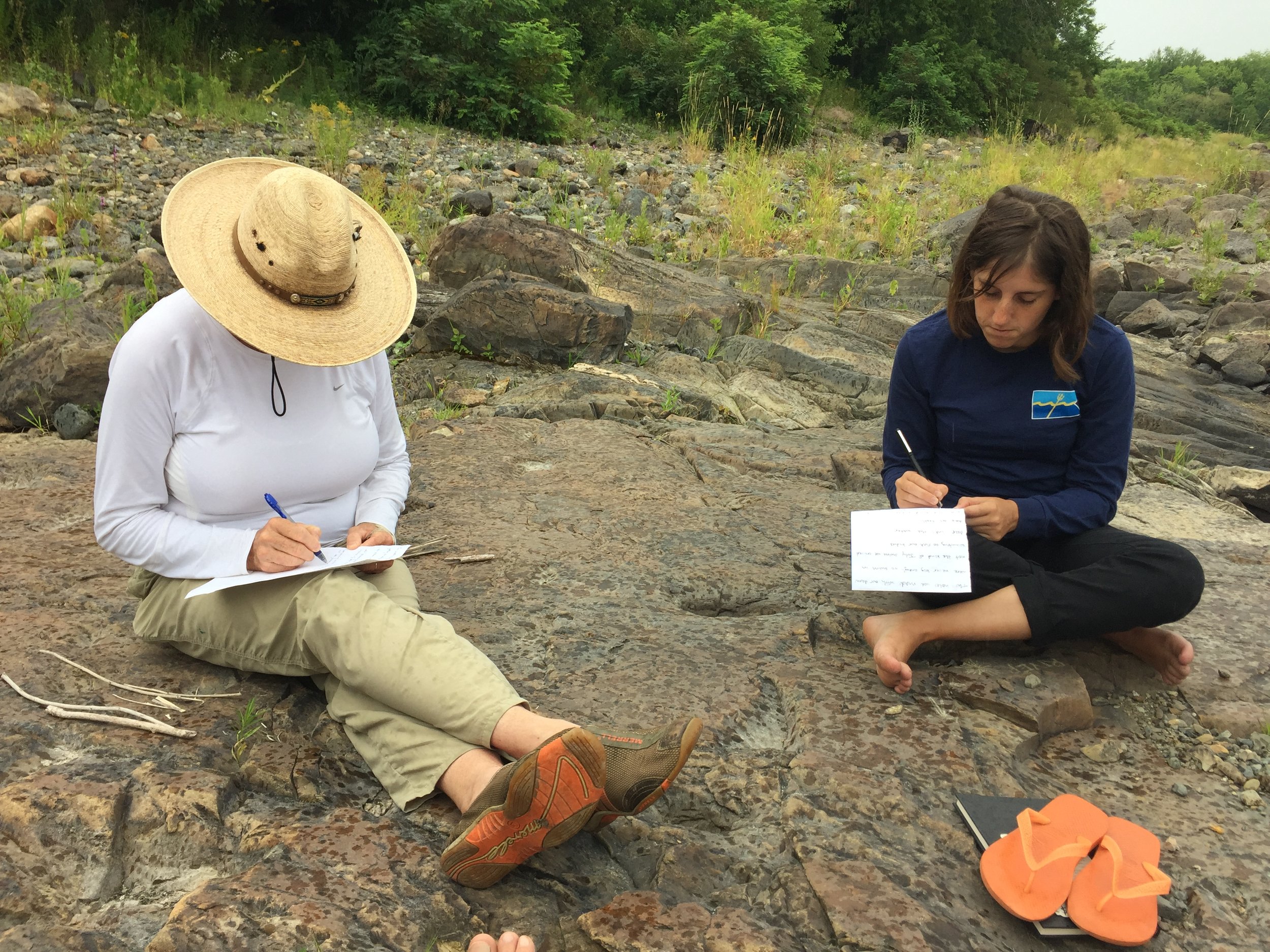
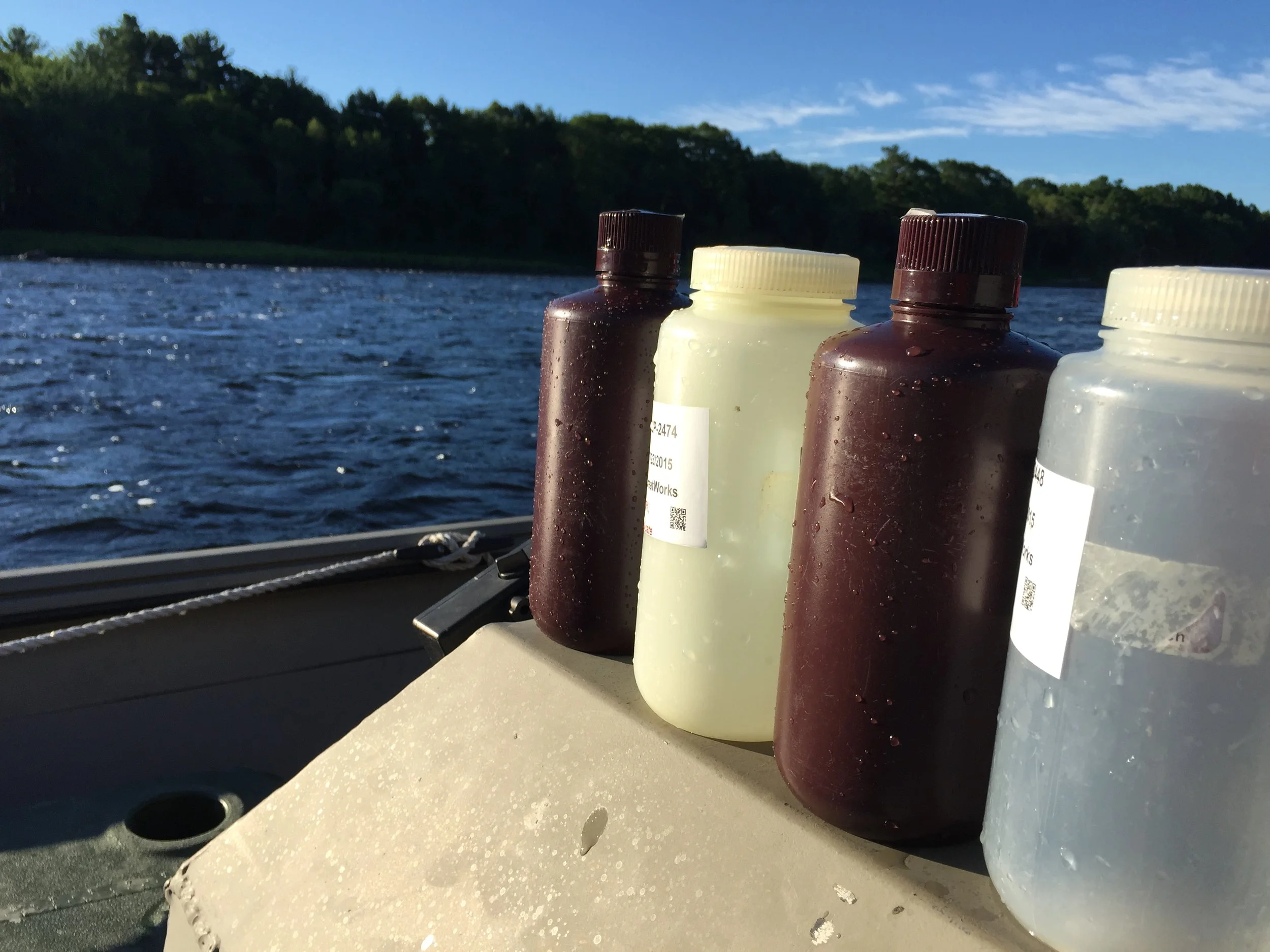
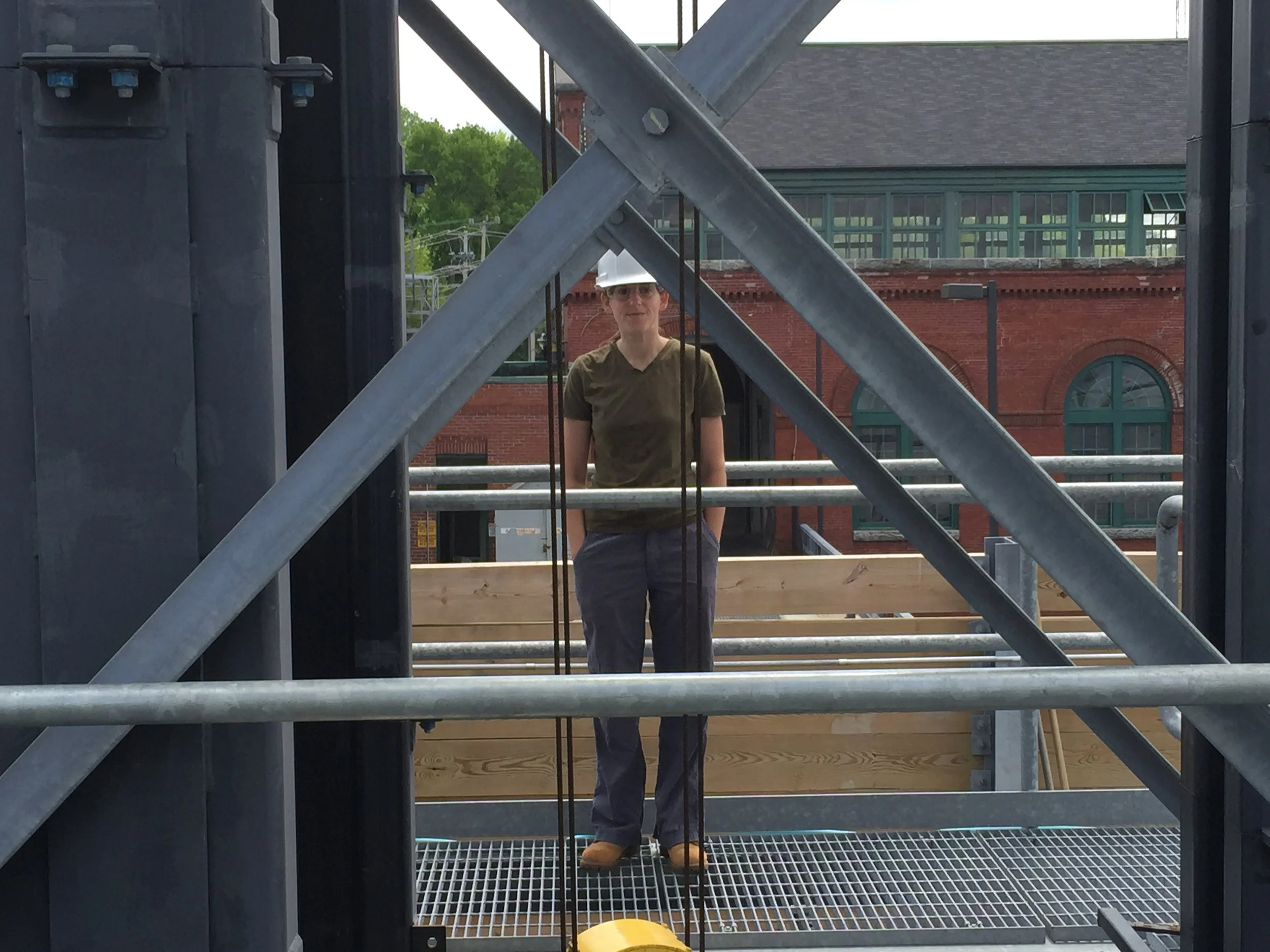
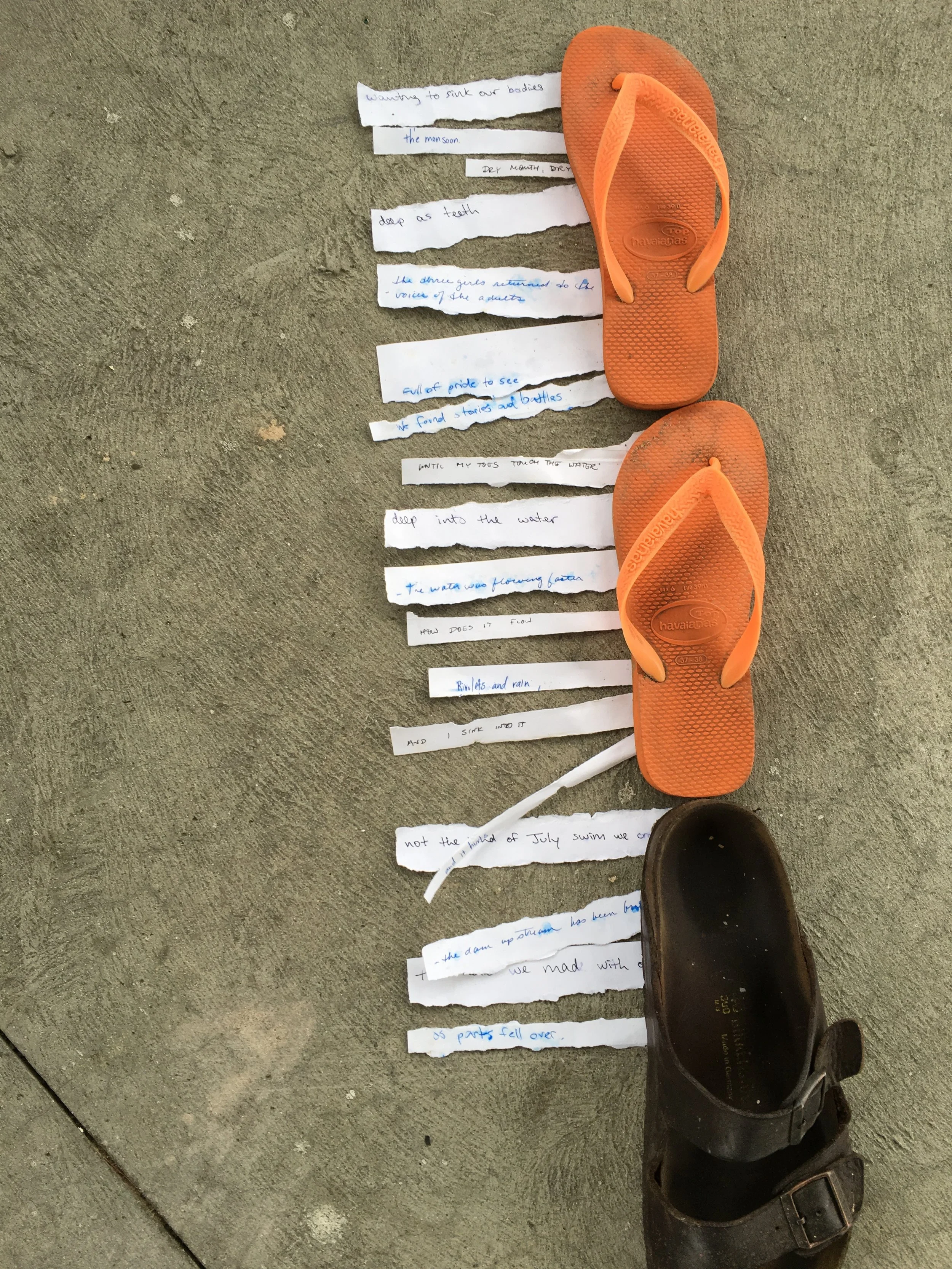
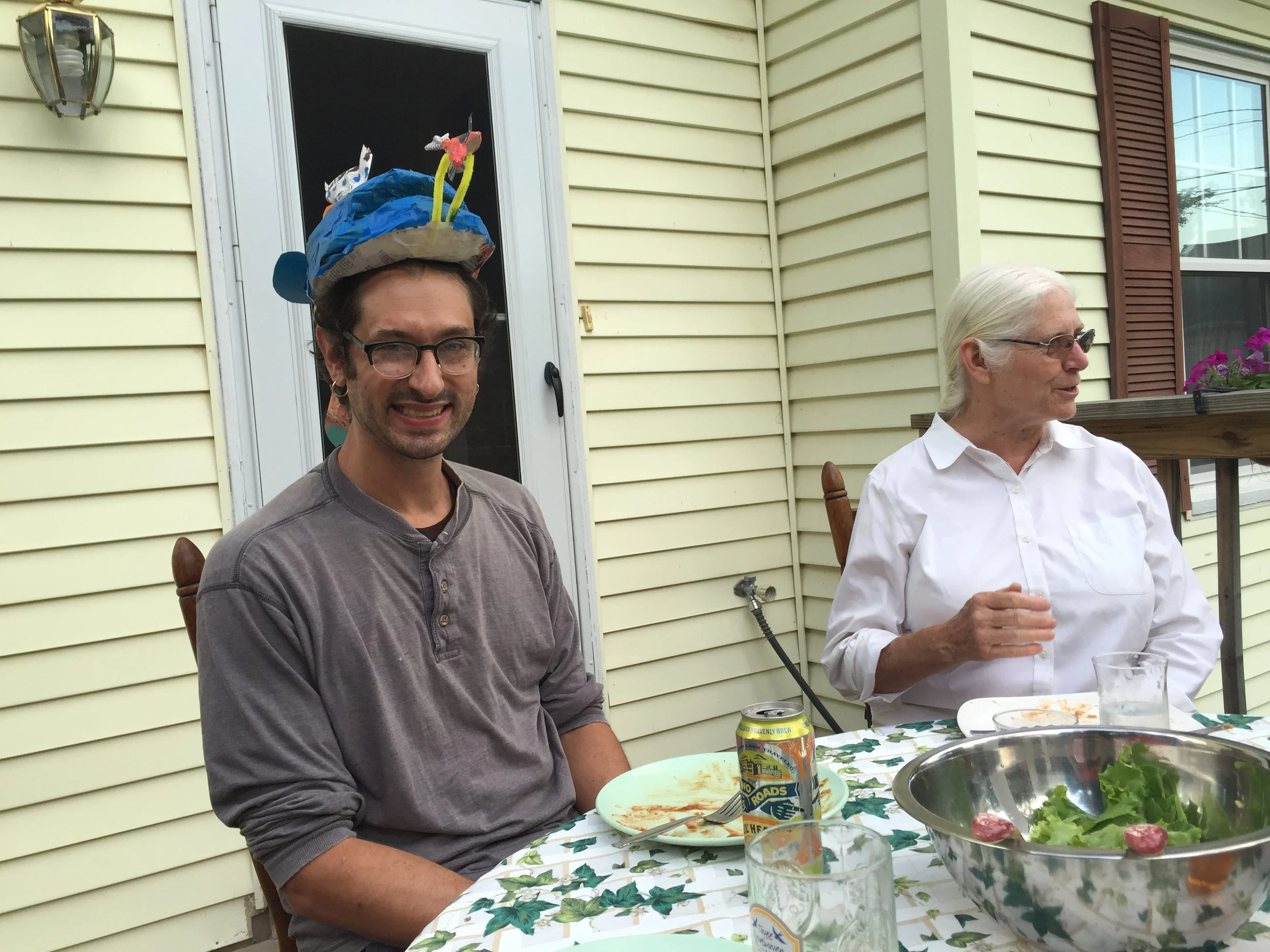
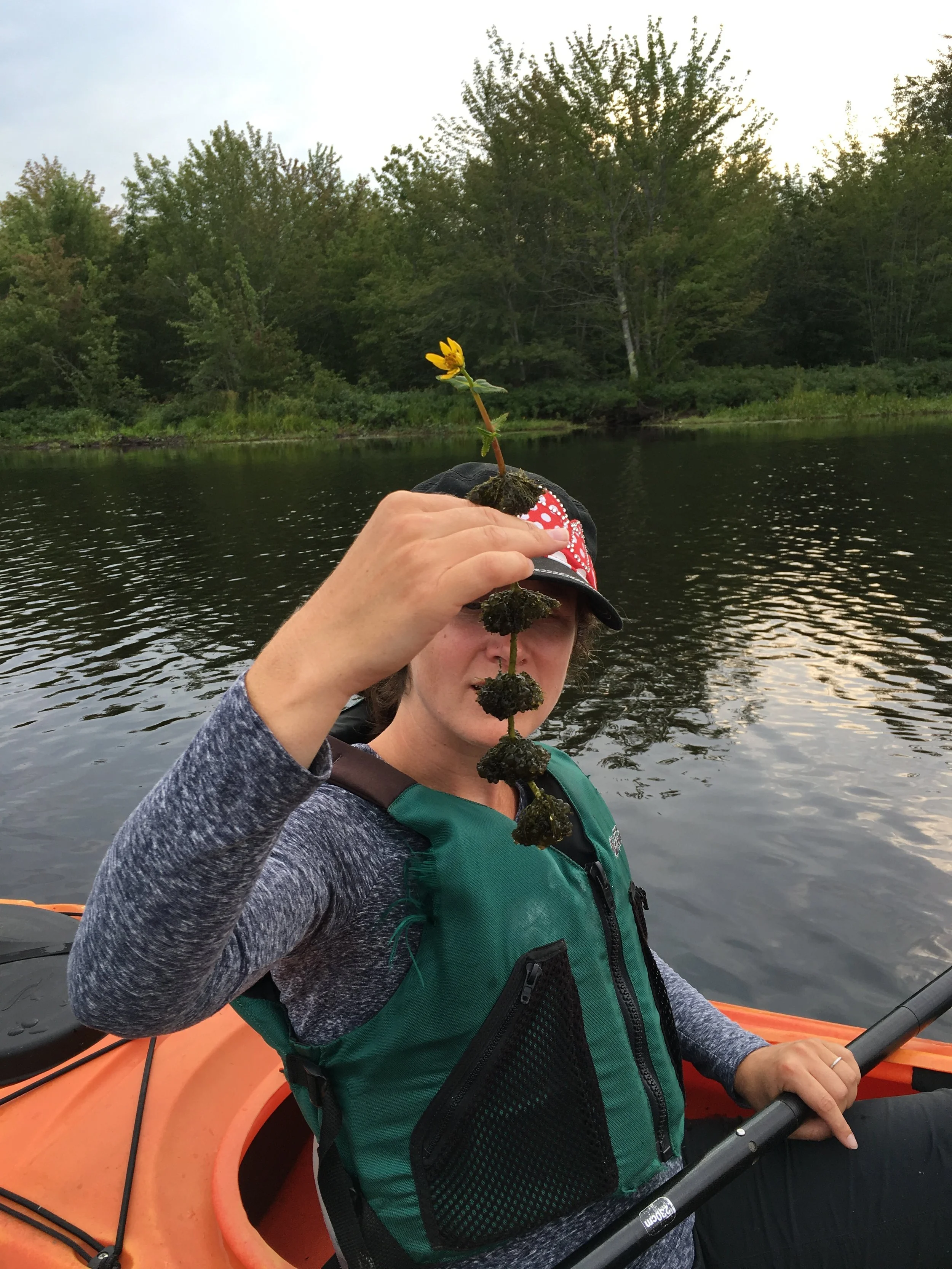
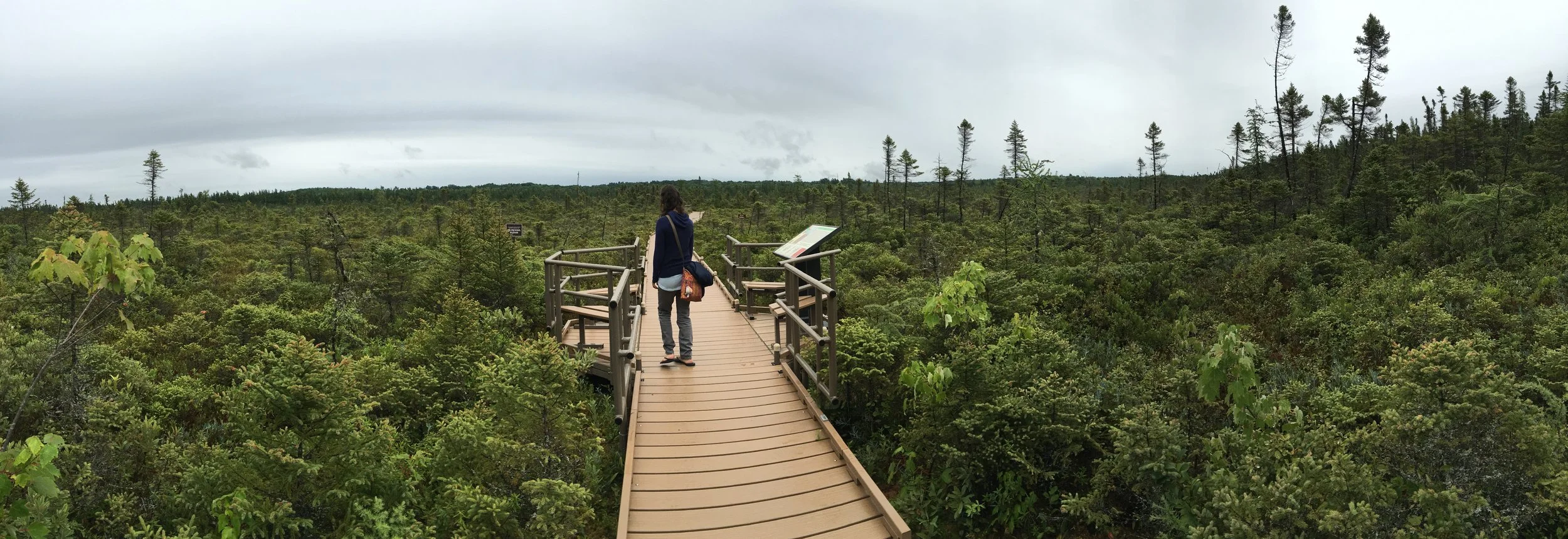
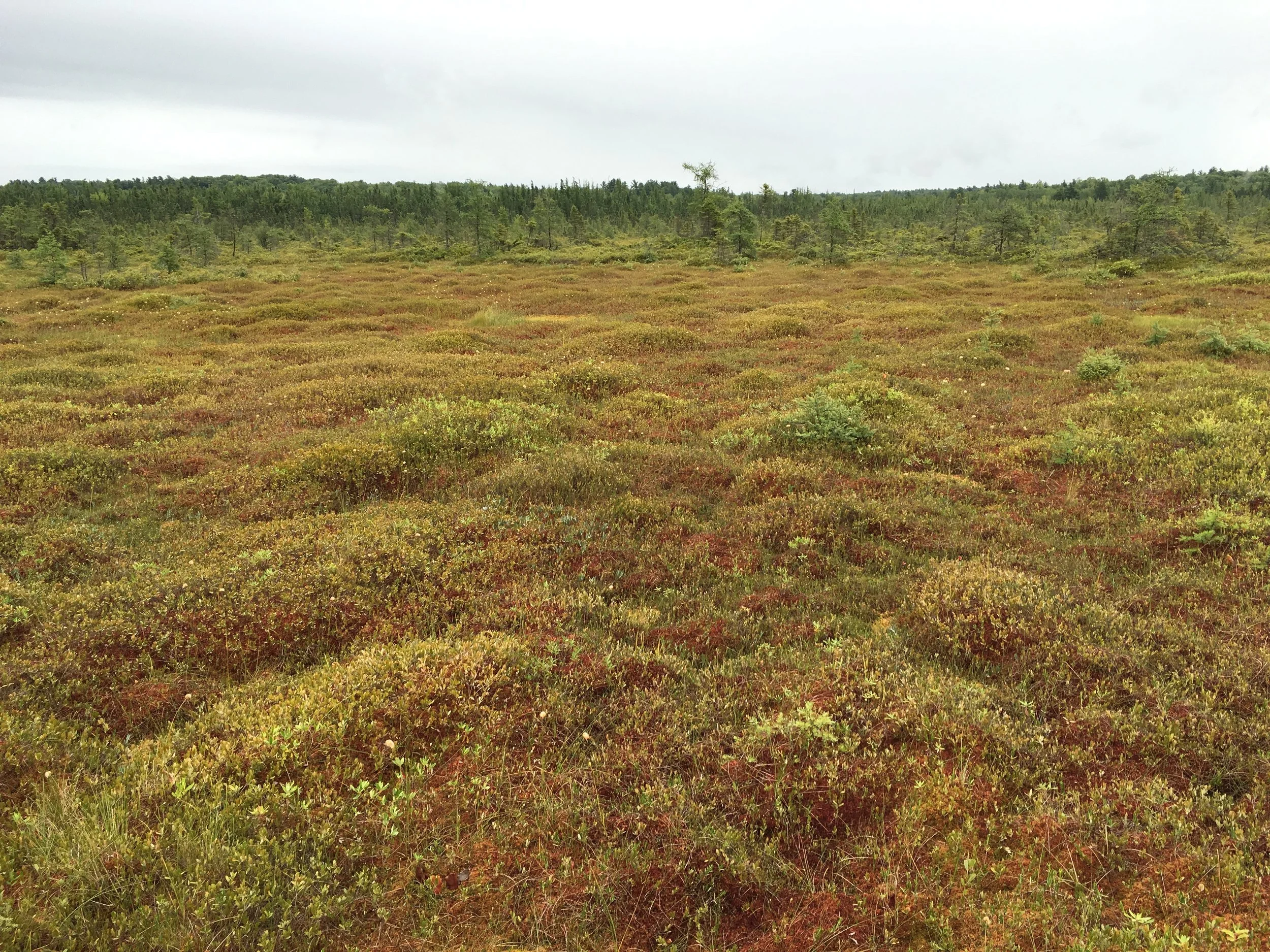
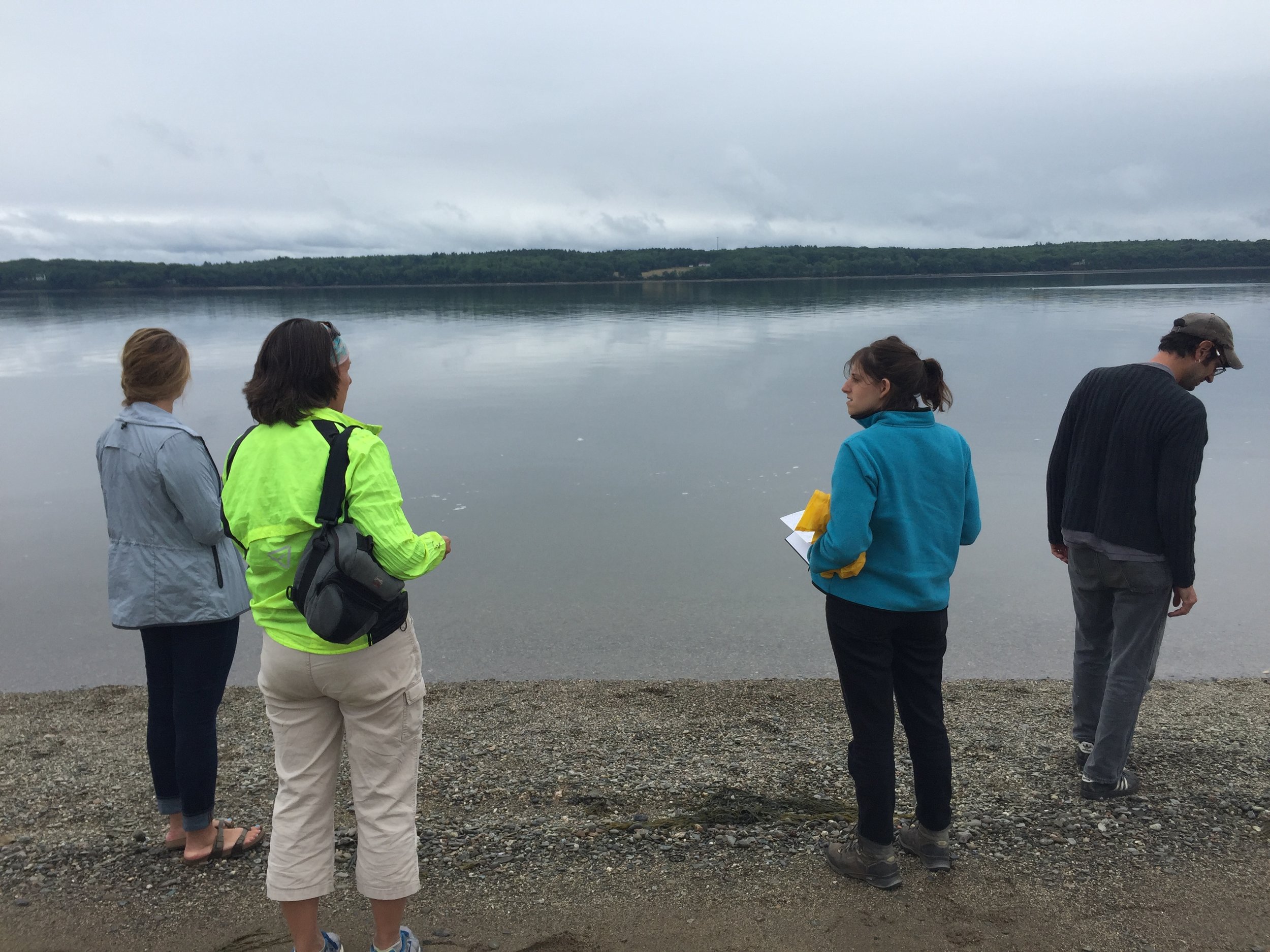
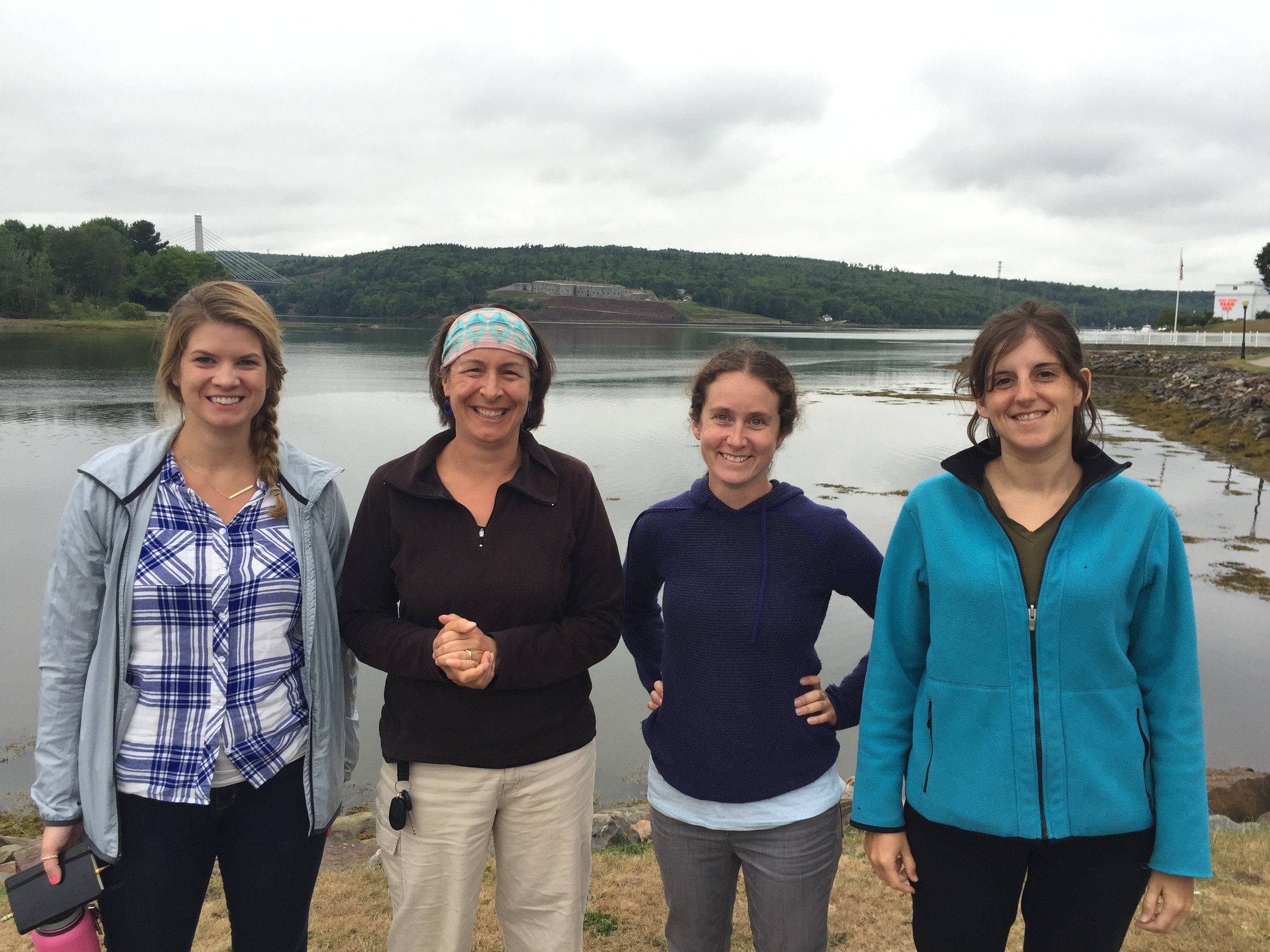
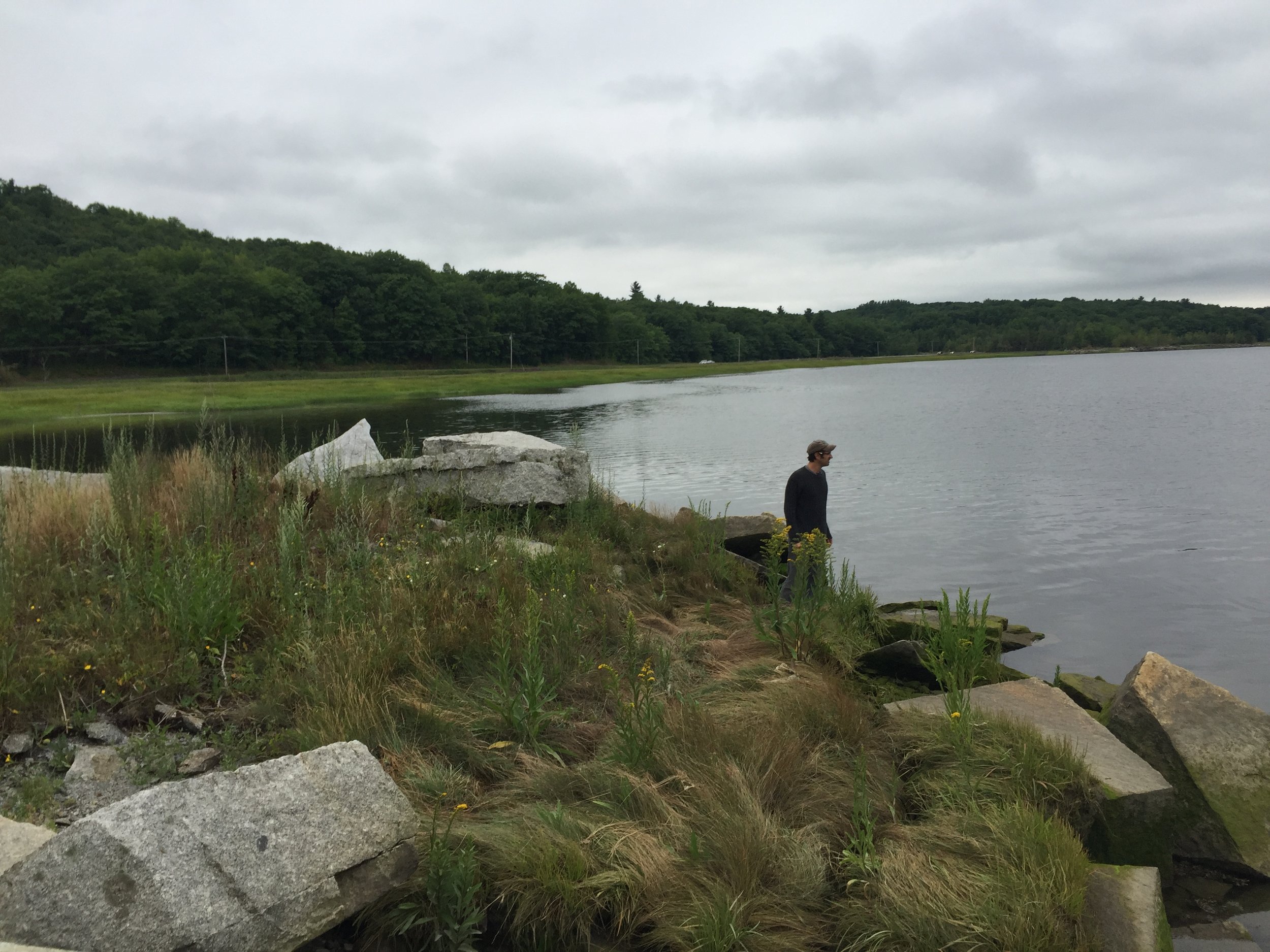
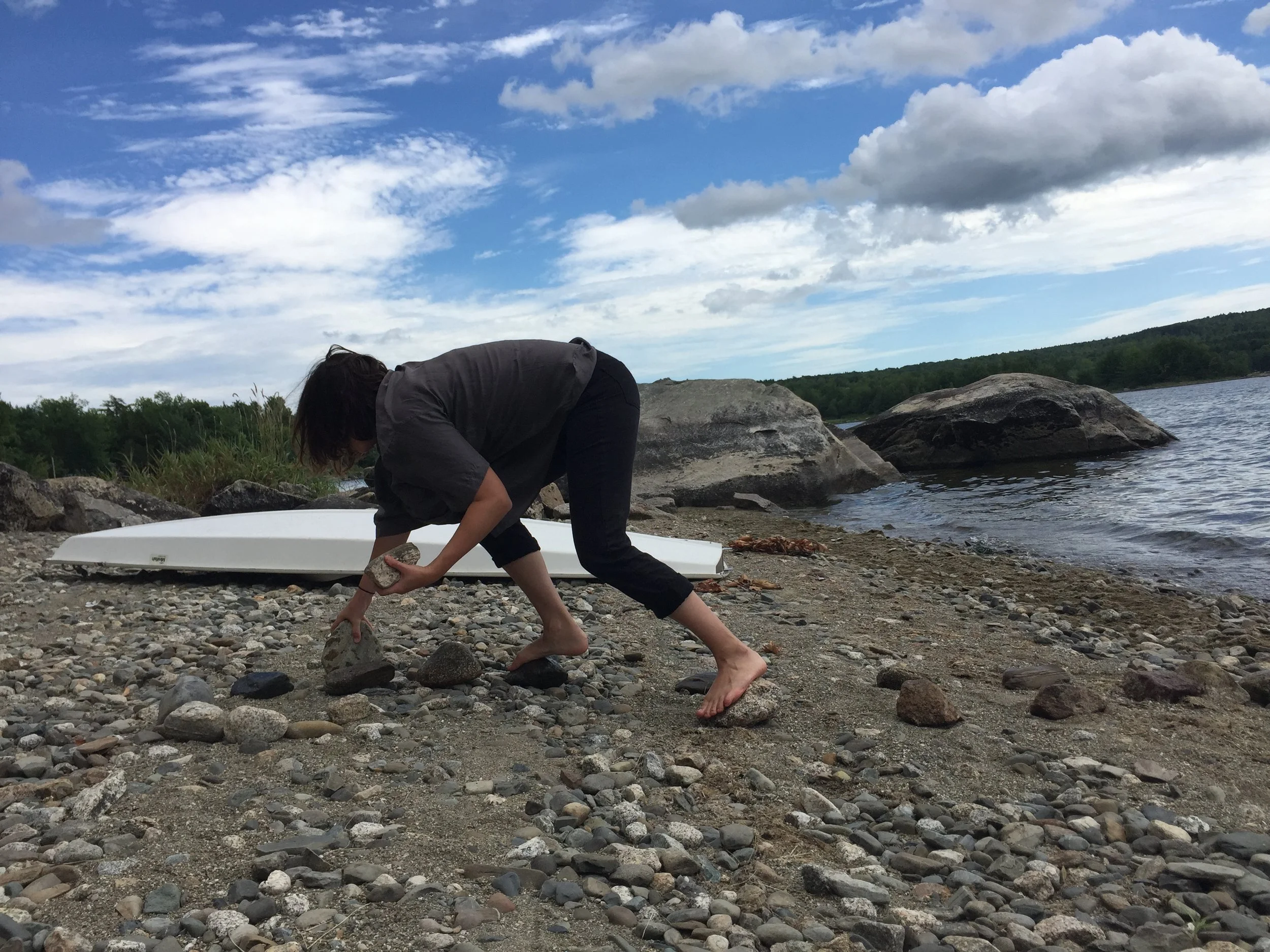
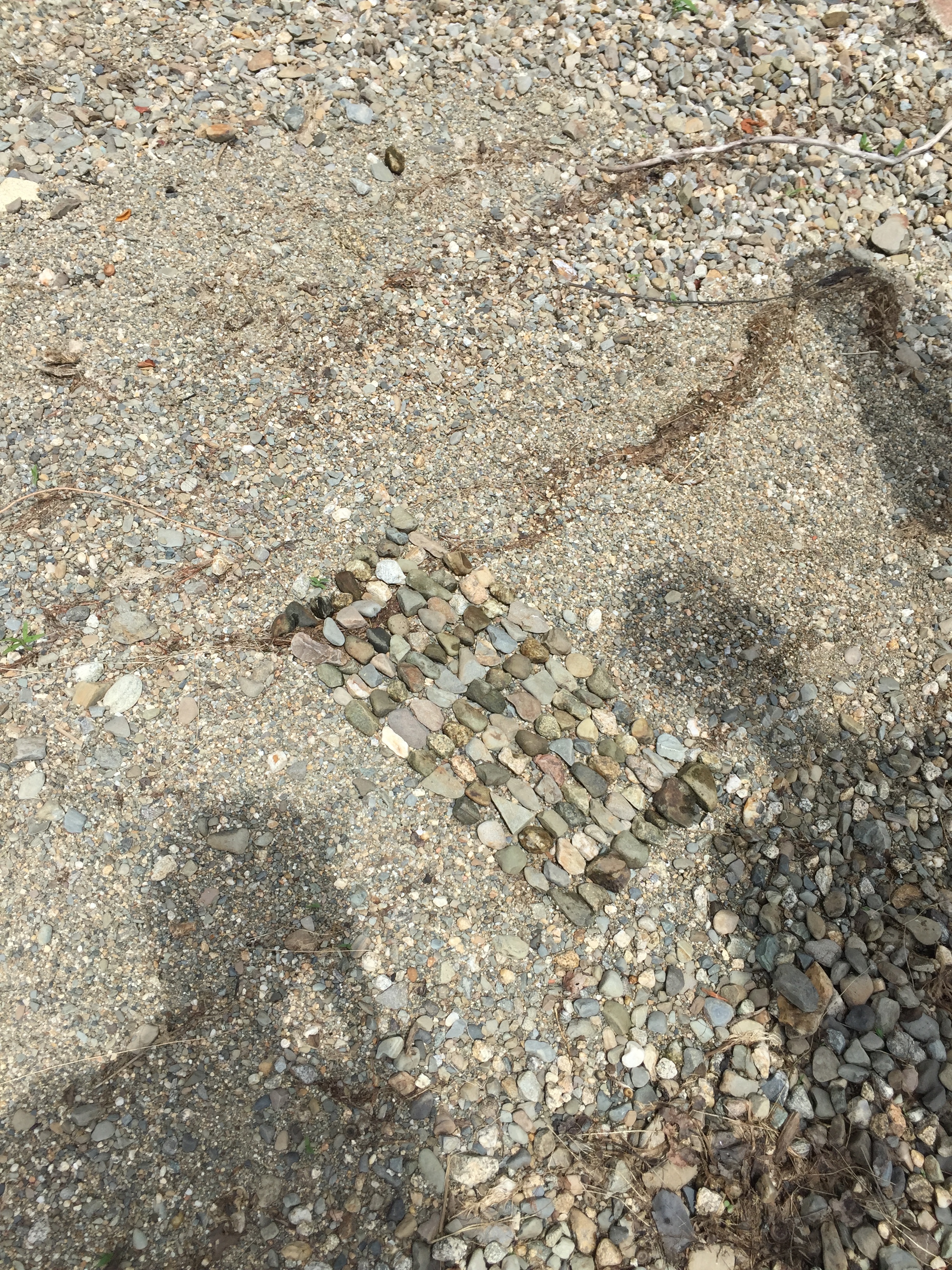
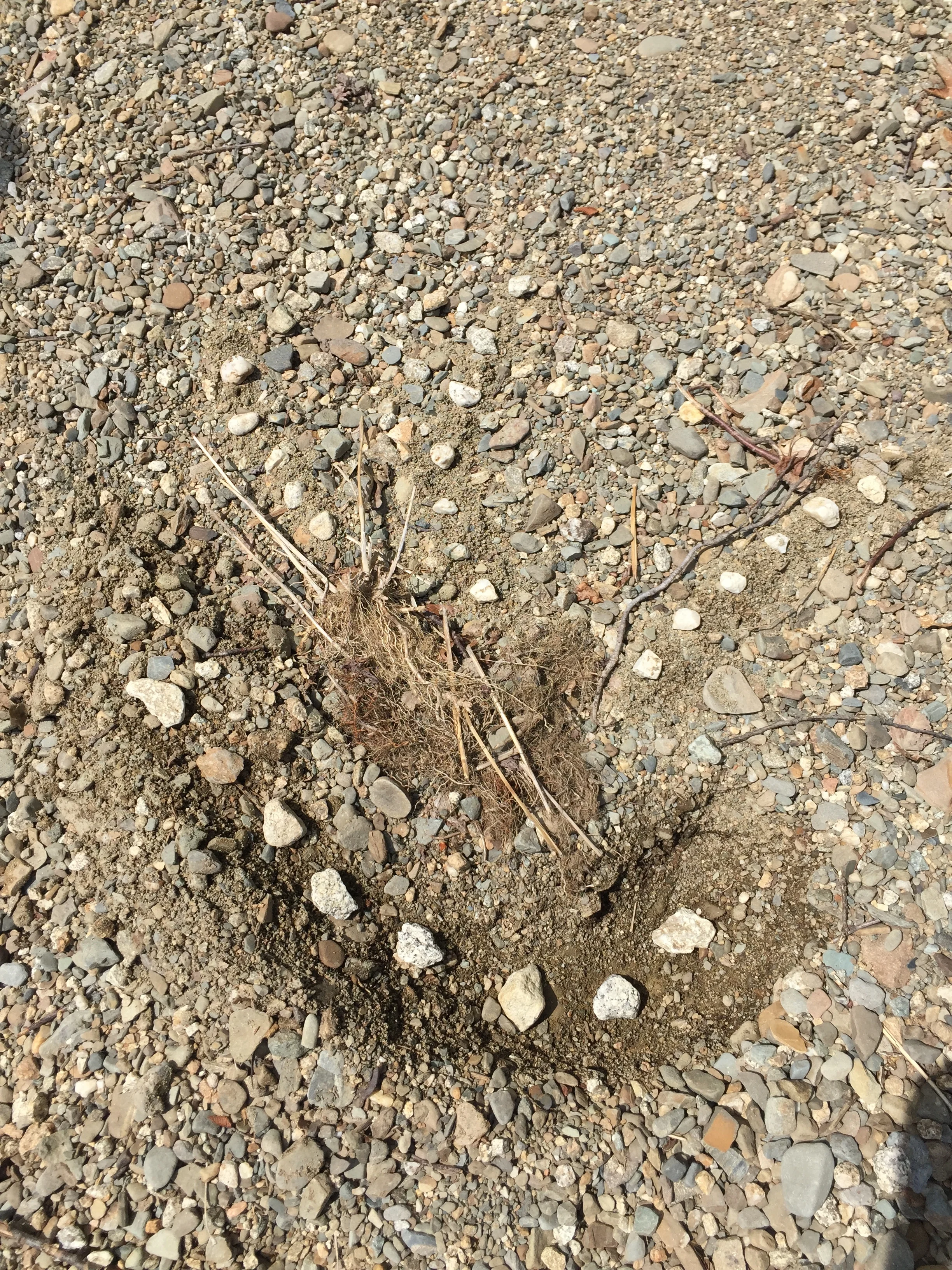
Core Values of the In Kinship Project
Dispersed/horizontal leadership. In Kinship employs a model of dispersed and horizontal leadership in which project actions are collaboratively developed according to the intersecting and self-determined needs of participants. Responsive to learning in collective process, and intended to hold multiple perspectives, actions may be initiated by any member of the In Kinship community. The project has no predetermined conclusion or specified creative outcome; it is intended as a framework to support community-driven, arts-based environmental action.
Centering and following Indigenous voices and guidance with respect to approaches to environmental care, harm, and repair. Any narrative, investigation, or dialogue concerning the Penobscot River is a conversation that impacts Penobscot people and must center Wabanaki perspectives and experiences. By incorporating discussions of colonization histories into all In Kinship activities and expecting all participants in the project to practice respect for Penobscot cultural and political sovereignty, we seek to model and better understand how colonial settler individuals can ethically participate in shifting public understanding of our shared environments and histories. By including both Native and non-Native participants in project activities and as collaborators at all levels, we work towards understanding how creative intersectional dialogue between Native and non-Native people might productively function.
Listening and responding to non-human voices in processes of collective care. We recognize a need to more accurately see our human place in the natural world, particularly in relation to the non-human inhabitants we share it with. In Kinship project actions are a practice in adjusting consciousness, both personally and collectively. Individual acts and community performance can help unravel our assumptions, revealing the information necessary for culture-wide behavioral change. In Kinship aims to consider this in practical terms: how might we expand our partnership development strategies to incorporate non-human partners? If we view the river and its nonhuman populations as both characters and participants in our dialogue, how might it help us strategically care for the needs of an entire ecosystem?
Equitable, transparent approaches to compensation for labor. We aim for transparency around the way we allocate funds; for open conversations with core project artists, administrators, partners, and collaborators about what resources (both monetary and not) are necessary to support involvement; and for equitable compensation that’s responsive to a wide range of personal and professional conditions and levels of privilege. We also insist on the value of the project’s many elements that are not “products”: the cross-sector and cross-cultural sharing of knowledge, embodied experience, collective agreements, performance and research practices. This means both monetary compensation for the labor of participating in those elements where possible, and recognizing that those elements can also act as non-monetary compensation or exchange.
In kinship activities include ...
Job-shadow collaboration with biologists at the Maine Department of Marine Resources, resulting in a co-written collection of PERFORMANCE SCORES, completed in 2015
A public story-gathering process, co-designed in partnership with the Penobscot River Restoration Trust, and conducted at the Whitewater Nationals Regatta, completed in 2015
A series of interdisciplinary arts-based dialogues, each exploring migratory fish restoration through partnership between artists and biologists, ongoing in 2016
A four-day Ensemble Gathering that brought artists and partners from various corners of the In Kinship project together to practice on-river research, attend local events, envision future activities, and enjoy meals in community, August 2016
The In Kinship Archives & Performance Fellowship (2019/2020): a year-long collective learning & performance process that follows the tradition of Wabanaki Guiding, connecting Native and non-Native people to place through experience, language, and story.
